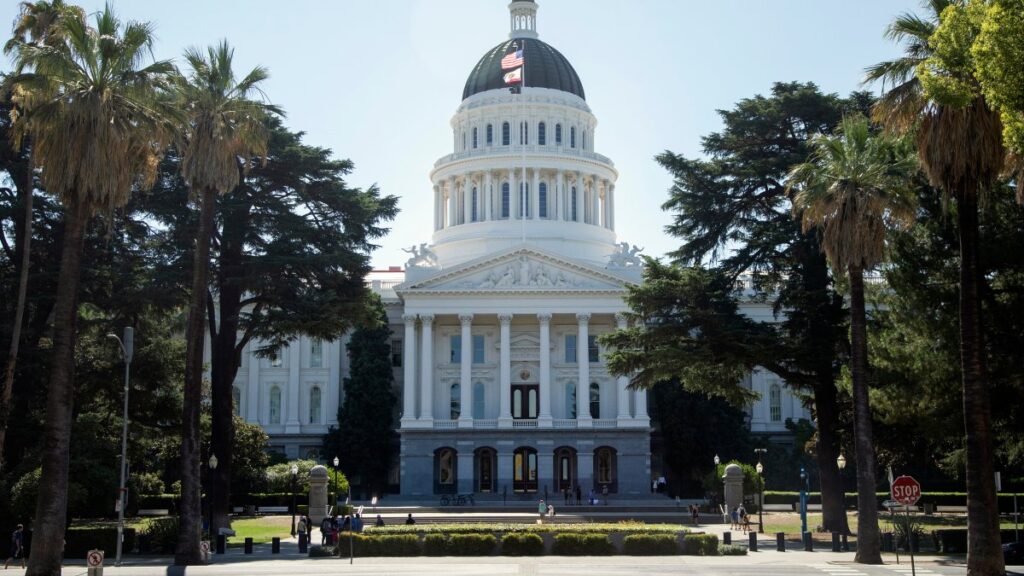As retail thefts rise, California's Democratic leadership is engaged in a fierce political battle with a coalition of law enforcement and business groups over how to crack down on the problem, as state lawmakers try to maintain progressive policies and avoid sending more people to prison.
The two most likely paths to be considered this year are a ballot proposal to create tougher penalties for repeat offenders and a package of bills aimed at making it easier to crack down on professional crime rings.
Leaders from both parties have accused each other of misleading voters and being unwilling to work toward compromise.
Both sides agree there is a need to crack down on large-scale theft, especially when groups of people openly break into stores and steal goods in full view.
At the center of the escalating political battle is Proposition 47, a progressive ballot measure passed by voters in 2014 that reduced certain theft and drug possession charges from felonies to misdemeanors, including nonviolent property crimes such as theft under $950, in part to ease overcrowding in prisons and jails.
Police officials said the bill made it harder to catch and punish shoplifters, and researchers told lawmakers there was no evidence linking the bill to higher violent crime rates.
A coalition of district attorneys and businesses, largely funded by big-box retailers, is pushing a bill that would impose tougher penalties on shoplifting and drug offenses, making theft a felony for anyone who has already been convicted of theft twice, regardless of the amount.
Possession of fentanyl will also be a felony, and those indicted on multiple drug-related charges will be ordered to undergo treatment.
The bill must be certified by the Secretary of State before it can be put to a vote later this month.
California Democratic leaders, backed by Gov. Gavin Newsom, want to keep tough-on-crime measures off the November ballot, fearing the measure would unfairly criminalize low-income people and those with substance use problems instead of targeting the masterminds who hire large groups of people to steal goods and resell them online.
Instead, lawmakers are fast-tracking a legislative package of 14 bills that would crack down on organized online resale schemes and car theft and provide funding for substance abuse counselors. The proposals could become law as soon as this month.
If voters approve a ballot initiative to tighten crime controls, Democratic leaders plan to repeal most of the measures in their own bill, citing potential inconsistencies.
Lawmakers earlier this week gave no details about how the two paths might collide. They said later that they were concerned that if both efforts were successful, they would allow law enforcement to stack penalties and send more people to prison, leading to mass incarceration and prison overcrowding.
Lawmakers say about a third of the measures in the bill could be in legal conflict with the ballot proposal.
The referendum campaign accused lawmakers of holding the proposal hostage in an attempt to break up the coalition. Local attorneys who supported the referendum campaign said the efforts could work together because referendums take precedence over legislation in the event of a legal clash.
Supporters of the ballot initiative said they remain willing to work with Democratic leadership but would only consider a solution that repeals Proposition 47.
“We're still willing to sit down with leaders to discuss this bill, but we're not willing to compromise,” Greg Totten, a former district attorney and leader of the referendum campaign, said at a press conference this week.
Governor Newsom and Democratic leaders are scheduled to negotiate by June 27 to remove the measure from the ballot. Meanwhile, lawmakers plan to get the bill to Governor Newsom's desk for his signature by next week, despite growing concerns from moderate Democrats.
“If you look at the bill that we've put together, it's very comprehensive and addresses a lot of the details of the existing legal framework,” Rep. Rick Zuber, author of the retail theft bill, told reporters. “It was never intended to be tacked on as a ballot measure that would chip away at the foundation of the fundamental law that we were trying to reform.”

